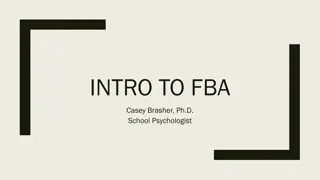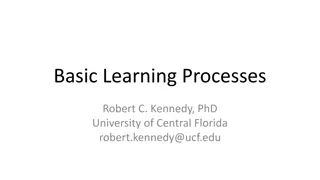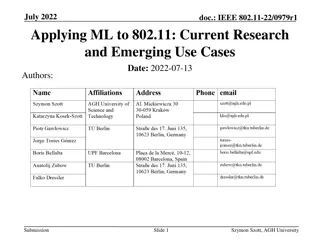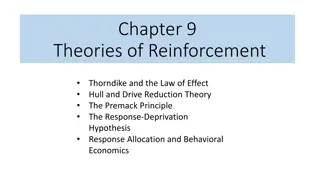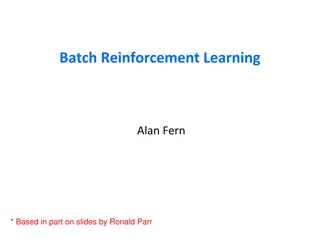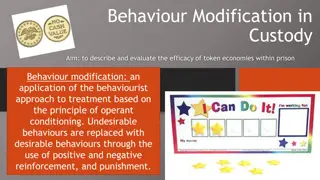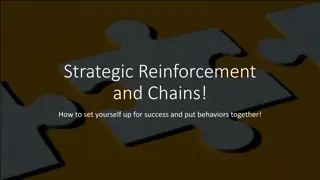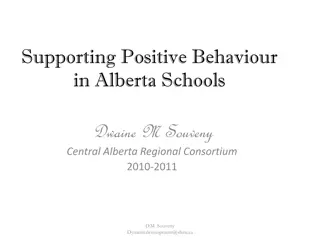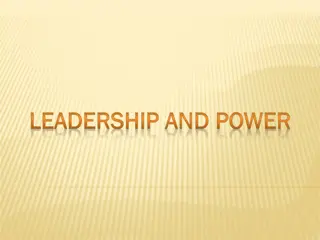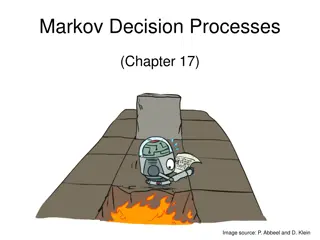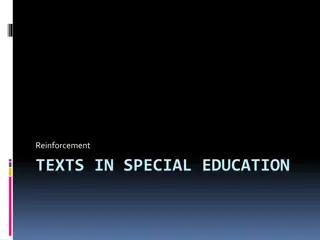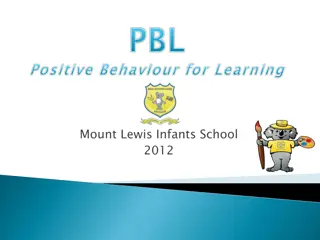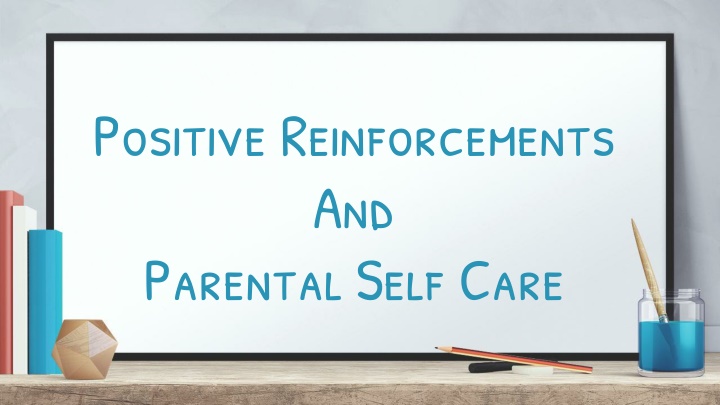
Positive Reinforcements and Parental Self-Care in Child Behavior Management
Understanding the importance of positive reinforcements, parental self-care, and effective communication in managing children's behavior. Learn how to teach and reinforce positive behavior while supporting children through challenging situations. Explore the significance of behavior as a form of communication and how to use positive reinforcement techniques to encourage desired behaviors.
Download Presentation

Please find below an Image/Link to download the presentation.
The content on the website is provided AS IS for your information and personal use only. It may not be sold, licensed, or shared on other websites without obtaining consent from the author. If you encounter any issues during the download, it is possible that the publisher has removed the file from their server.
You are allowed to download the files provided on this website for personal or commercial use, subject to the condition that they are used lawfully. All files are the property of their respective owners.
The content on the website is provided AS IS for your information and personal use only. It may not be sold, licensed, or shared on other websites without obtaining consent from the author.
E N D
Presentation Transcript
Positive Reinforcements And Parental Self Care
Hello! Hello! Martine Bruno mbruno@gbapp.org Kevin Muhammad kmuhammad@gbapp.org 2
Activity: GAME Directions: Do not use a computer. Do not use a pen or paper. Make sure you don t cheat. Make sure you keep 3
Teaching and Reinforcing Teaching and Reinforcing Positive behavior and Positive behavior and decision Making decision Making 4
Young children are resilient and if properly supported, can overcome traumatic events 5
Behavior As Language Behavior As Language 6
WHEN A CHILD DOES NOT HAVE LANGUAGE WHEN A CHILD DOES NOT HAVE LANGUAGE Behavior Is the means children communicate when they don t have the appropriate words. Is way children try to get what they want or need. Is a way children will seek attention whether positive or negative through behaviors. 7
Positive Reinforcement Positive Reinforcement When a behavior is followed by something that is valued (a reward), a person is more likely to repeat that behavior. Over time, this encourages positive behavior change. STEPS 1 - Identify a goal behavior. (What would you like to see?) 2- Each time the child uses the behavior or skill successfully, they get a reward. The reward should be meaningful to the individual. ( ie. praise, a toy or book, watching a video, access to playground or other location, ect.) Positive rewards encourage the person to continue using the skill. Over time this leads to meaningful behavior change. Source: https://www.autismspeaks.org/applied-behavior-analysis 8
A, B,C it Easy Like 1,2,3 A, B,C it Easy Like 1,2,3 Antecedent Behavior Consequences -This is what occurs right before the target behavior - The response or lack of response to the antecedent. - This comes directly after the behavior. 9
Parental Self Care Parental Self Care 10
A picture is worth a A picture is worth a thousand words thousand words A complex idea can be conveyed with just a single still image, namely making it possible to absorb large amounts of data quickly. 11
Want big impact? Use big image. Use big image. 12



